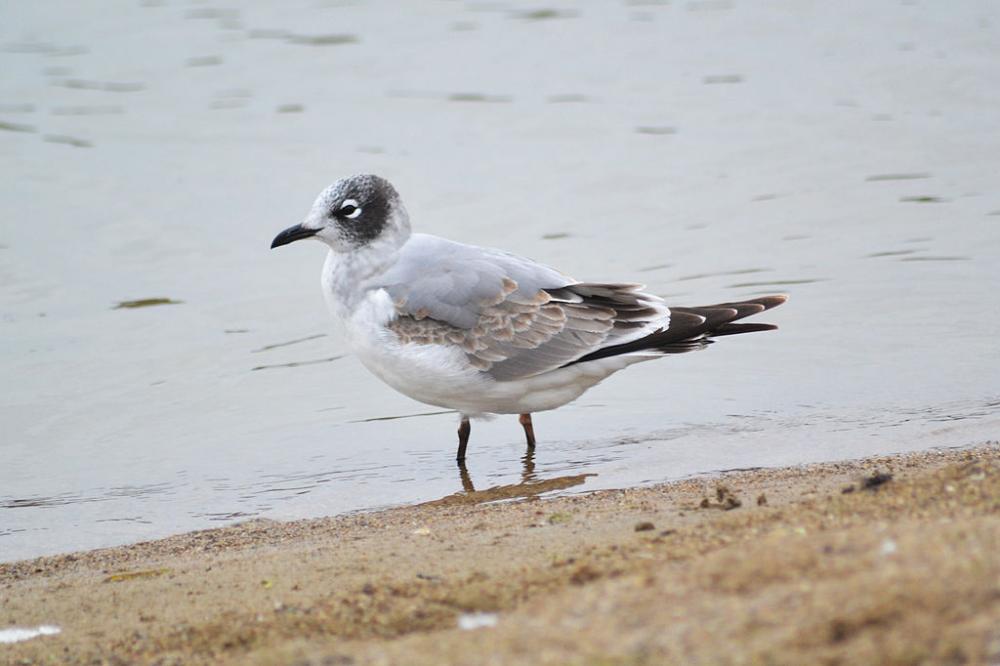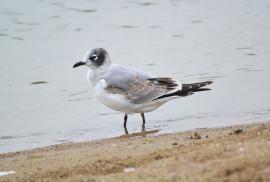Guide to Boreal Birds
Overview
A freshwater version of the Laughing Gull, Franklin's Gull will breed only in large colonies and so is sensitive to habitat destruction. When agriculture encroaches on a nesting marsh and it becomes too small for a large colony, the birds move elsewhere. They are much less numerous than in the past, but migrating flocks of these "Prairie Doves" are still a familiar sight in spring on the southern plains.
Description
13-15" (33-38 cm). A slender gull with a black hood in breeding plumage, similar to Laughing Gull, but smaller, paler. In summer, adult has dark gray back and wings; trailing edge of wing is white, wing tip is black, separated from gray by white spots. Smudgy half-hood in winter. Young bird is dark brown with contrasting white rump and broad black tail band. See Laughing Gull.
Voice
A strident ha-ha-ha-ha-ha-ha, similar to Laughing Gull's but higher pitched.
Nesting
3 buff-brown eggs, spotted with brown, on a loose platform in a marsh. Nests in large, noisy colonies.
Habitat
Prairie marshes and sloughs. Often feeds in plowed fields.
Range/Migration
Breeds on prairie marshes from southern Canada to South Dakota and Iowa; also in scattered marshes in West. Migrates to southeast and winters mainly along west coast of South America.



